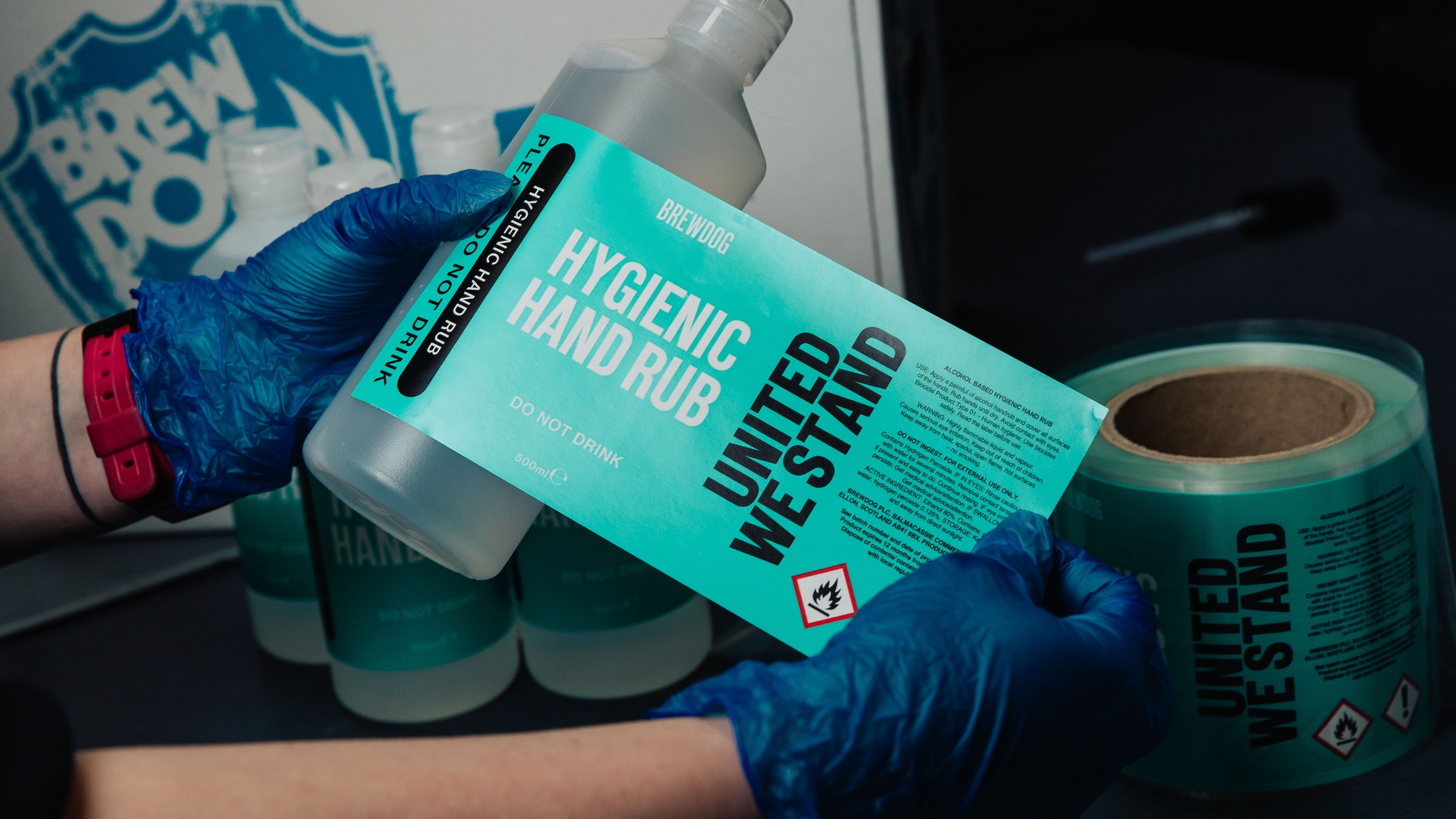Read our coverage of the coronavirus pandemic here.
The business we want? Businesses respond to the COVID-19 crisis
Posted on 05 May 2020 Categories: Blog, Coronavirus, The business we want
by Gemma Lawrence
We recently looked at the ‘explosion in citizen-led action in response to the coronavirus pandemic’. This week, we look at how some businesses have responded to the crisis. In the early stages of the outbreak, we saw a number of different businesses jumping in with offers to support healthcare workers and manufacture much-needed supplies. As the epidemic has continued, groups of businesses are beginning to come together to consider the need to build back better. And, of course, some businesses have responded badly…
The founders of independent brewers BrewDog, James Watt and Martin Dickie, have said they won’t take a salary in 2020 in order to protect jobs across their business during the coronavirus outbreak. They have also repurposed their distilleries to make hand sanitisers to be donated to local charities and the community. The initial batch of BrewDog hand sanitiser was turned down by Aberdeen Royal Infirmary because it didn’t meet alcohol % requirements for a medical environment , but according to Watt, BrewDog have now ‘donated hundreds of thousands of bottles at above 80% ABV’.

Many supermarkets have implemented dedicated shopping hours in-store for NHS staff and introduced restrictions on certain products to ensure everyone is able to buy what they need. Some have also been given access to the government’s list of vulnerable people, in order to better prioritise online deliveries for those most in need. Morrisons announced it would distribute £10 million worth of food to the UK’s food banks during the coronavirus outbreak, while Lidl is donating ‘thousands of fresh fruit and vegetable bags to NHS staff in an effort to help provide frontline health workers with fresh produce’. Pret a Manger was one of the first chains to offer free hot drinks and 50 per cent off food to all NHS staff.

Following the lead of footballers and hoteliers Gary Neville and Ryan Giggs, some hotels are now offering free accommodation to NHS staff either ‘forced to find alternative accommodation during the pandemic because they live with relatives in high-risk groups’ or drafted in from other areas in the country. London’s Claridge’s announced it will open its doors to 40 doctors, nurses and other key staff, as well as providing them with breakfast and dinner. The Berkeley has begun a ‘999 meal drive-thru’, providing free meals to those working in the emergency services.
Internationally, businesses are looking past the immediate crisis to the prospect of building back better post-coronavirus. On 14 April, the ‘European Alliance for Green Recovery’ was launched, which saw CEOs of 37 of Europe’s biggest global companies – including EDP, Inter IKEA group, Nestlé and the Volvo Group – join ministers from 11 countries (as of 20 April, this number had grown to 13) and MEPs, business associations and trade unions to call for a green recovery in Europe. Carlos Sallé of Iberdrola, one of the 37 corporate signatories, said:
‘When … the world eventually begins to recover from the COVID-19 crisis, aligning long-term economic stimulus and policy packages with climate goals will be crucial not only to create jobs and to reactivate the economy, but also for a long-term, resilient and healthy economy.’
The call to #BuildBackBetter was also echoed outside of the EU. A statement from Mars urged governments ‘to ensure their plans to rebuild our economies prioritize the health of humans by keeping the health of the environment a core consideration’, while Anirban Ghosh, CSO of the Mahindra Group, said: ‘we want to play our part in building a better future and reducing the risk of the disruption that runaway climate change would cause.’
Not all businesses have sought to protect employees or act in the public interest. Mike Ashley, CEO of Sports Direct, was forced to apologise after lobbying Boris Johnson directly on Twitter to keep his shops open, arguing they were an ‘essential service’. Even after having been forced to close stores, Ashley said Sports Direct factories and warehouses would remain open. One factory worker said, ‘I feel massively at risk and I feel like my health, life and family … are undervalued.’ Most recently, it was revealed that some furloughed store managers had been asked to volunteer to go ‘secretly’ into stores once a week, in breach of the government’s furlough scheme. Ashley had also told staff to return to work full-time beginning 4 May on reduced pay, but was then forced to do a U-turn after the Guardian published details of the plan.

JD Wetherspoon chairman Tim Martin told staff the company couldn’t afford to pay them until it was reimbursed for their wages through the government job retention scheme. In a video to his 43,000 staff, he went on to advise them to seek a job at Tesco: ‘If you’re offered a job … if you think it’s a good idea, do it.’ Taking it one step further, Conservative MP Jacob Rees-Mogg’s investment firm has been criticised for exploiting the coronavirus crisis. Somerset Capital Management (SCM) told clients that the crisis provided an opportunity to buy up cheap businesses and make ‘super normal returns’. SCM fund manager Mark Asquith wrote in a note to clients that ‘market dislocations of this magnitude … have historically provided excellent entry points for investors’. In the face of widespread public backlash, a partner at SCM said that their focus was ‘on the valuations currently seen in the emerging markets, not the appalling human cost of the virus’ and he hoped their initial ‘comments are not misconstrued as being unsympathetic’.
Posted on 05 May 2020 Categories: Blog, Coronavirus, The business we want
